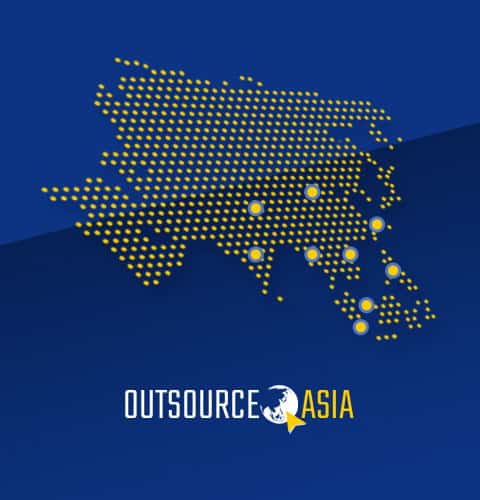
Finding the Right Outsourcing Partner: Key Factors to Consider
Many businesses today are looking into outsourcing as a strategic option in their pursuit of efficiency, competitiveness, and cost-efficiency. It’s a choice that can change the course of an organization, from internal operations to external relationships. It’s important to take your time and do your research while looking for an outsourcing partner.
From years working with both sides – outsourcing suppliers and clients looking to outsource, we have come up with the ultimate list of non-negotiables. Here are the key factors to consider while looking for the best outsourcing partner.
- Cost, expertise, and infrastructure
Consider the expenses involved with hiring, training, managing, and retaining employees. It is a substantial investment, and sometimes businesses cannot expand beyond their current size because they lack the funds to hire more employees.
This is where outsourcing first entered the picture. It can be cost-effective to expand resources by outsourcing, especially if the resources are only needed during peak times. Additionally, outsourced resources possess significant expertise since they are constantly working within that field. The outsourcing service provider also owns the infrastructure. It also saves businesses money by saving on the costs associated with setting up, maintaining, repairing, and upgrading in-house systems.
How can you contact outsourcing partners when the need arises? Can the outsourcing organization offer technical support and assistance? Be sure to do your research on the outsourcing vendor to determine whether they understand your business needs and can meet them. Assess the responsiveness and support of the back end.
- Maintaining timeliness
Businesses can stay on schedule with outsourcing. By having access to resources and reliable infrastructure, errors are reduced and often eliminated, allowing for timely deliveries and better quality.
Regardless of its quality, work that is not delivered on time loses significance. Timely delivery is equally important as striving for perfection.
Choose vendors who can deliver results on time. As part of this process, quality options are evaluated, benchmarks are established, and systems to ensure deadlines are met are evaluated.
- Tech capabilities
For small and medium-sized businesses, technology can be a costly necessity. In outsourcing, businesses can access the latest technology easily and without heavy capital investment by relying on the IT infrastructure of the provider.
Communicate with the intended vendor several times if necessary, to ensure their capabilities match your business requirements. Ask about storage and backup capabilities, as well as other important areas. IT system maintenance and troubleshooting are handled by the provider, so businesses can access advanced technology.
- Security and reliability
The outsourcing process raises concerns about security and reliability, especially when it comes to data and information exchange. A robust security system can alleviate most of these fears while enhancing data security and information safety.
Business requirements should be communicated clearly. Test out outsourcing partners’ capabilities with respect to your own business through an initial pilot or demo session. It can help you understand how well a potential vendor aligns with your business requirements, including those related to data security and information safety.
Creating a Cooperative Structure
Selecting an outsourcing partner involves determining how you will collaborate: structured, efficient, or flexible, collaborative, interactive. It is essential to maintain a good working relationship. It doesn’t matter how good your contract is, if your relationship isn’t working, it will be worthless, so we suggest you discuss the details of the relationship in advance. If there are working procedures determined for the outsourcing partner, it would be wise to check them out. Discover which process approach is best for your project and will facilitate easy collaboration and communication during the collaboration.
Cost
Clearly defining the financial terms is essential to avoid hidden costs, cover all payment schedules, and address taxing concerns. Flexible pricing might be tempting, but you should not let price dictate your outsourcing relationship. You should discuss the following issues with your potential partner:
- Project pricing models proposed and applied
- Any hidden costs, exception costs based on performance metrics, and the cost of the agreement
- Accounting for time
- The management of milestones
- Schedule of payments
- The tax system
The idiom “devil is in the details” applies quite well to the concept of a good request for proposals, but make sure not to overdo it. Choosing and asking for information that will be useful for the project’s cooperation is the goal. You should narrow down your list of potential outsourcing partners to a shortlist after a successful selection.
Partner with the Right Outsourcing Company
With the advent of technology, businesses are no longer restricted to working with professionals in their immediate vicinity. Regardless of where you are in the world, you can now work with talents around the world.
Knowing what to look for in an outsourcing partner is the key. Check off all these items, and you’re set.
What criteria do you employ to choose the perfect outsourcing partner? If you need help in finding the right outsourcing partner, book a FREE APPOINTMENT with Outsource Asia experts today.


